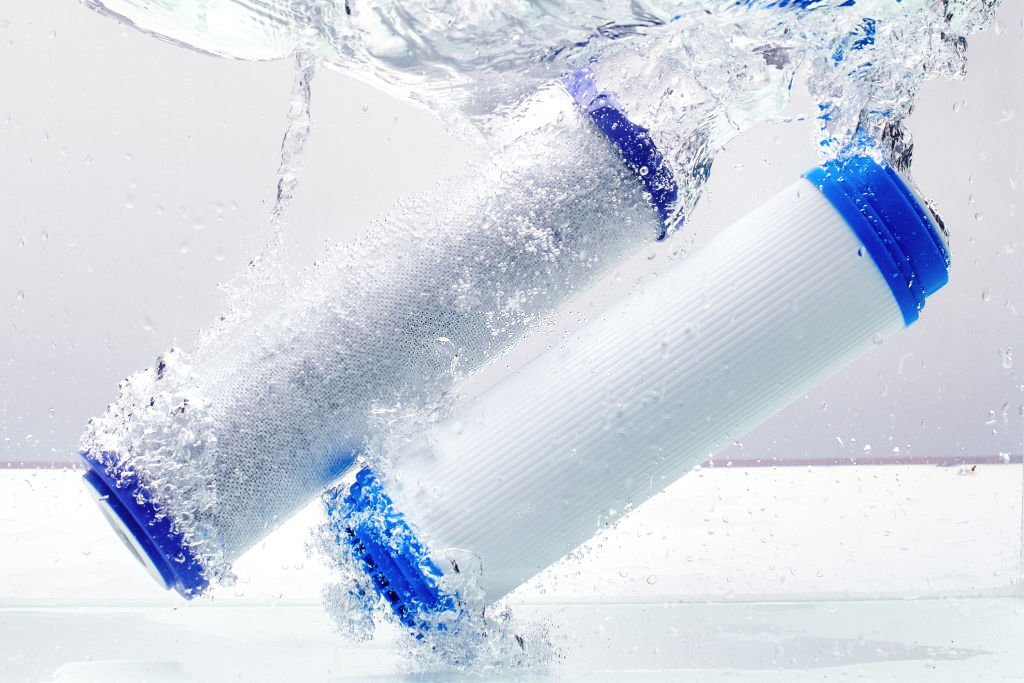Activated carbon filters are essential in various industries, such as sewage treatment plants, pharmaceutical manufacturing, and food and beverage production. They remove impurities, odors, and other harmful substances from water.
As a leading supplier of activated carbon filters, we get many questions from our clients about their usage, effectiveness, and maintenance. Here are some of the most commonly asked questions you should know.

12 Questions About Activated Carbon Filters: Answered
1. When and where should you use a carbon filter?
Activated carbon filters are versatile and can be used in various settings, such as homes, commercial buildings, hospitals, and industrial facilities. They are particularly useful in removing unpleasant odors, chemicals, and other impurities from water. You can use them in water filtration systems, regardless of the size and scale, to ensure clean and healthy water.
2. How often should you change your activated carbon filter?
The frequency of changing your carbon filter depends on several factors, such as the level of pollutants, the size of the filter, and the frequency of use. Typically, you should change your carbon filter every three to six months. However, if you live in a highly polluted area or use the filter more frequently, you may need to change it more often.
3. Is an activated carbon filter effective?
Activated carbon filters are highly effective in removing impurities and odors from the air or water. They work by adsorbing pollutants onto the surface of the activated carbon, which has a large surface area due to its porous nature. However, the effectiveness of the filter depends on the quality of the activated carbon used, the size of the filter, and the flow rate of air or water passing through the filter. It is wise to buy these filters from certified activated carbon filter manufacturers to ensure you get the best quality.
4. Are Activated Carbon Filters Good at Removing Chlorine from Water?
Yes, activated carbon filters effectively remove chlorine and other chemicals from water. Chlorine is commonly used in municipal water treatment plants to disinfect water but can leave an unpleasant taste and odor. The filters can remove chlorine and improve the taste and odor of water.
5. Are Activated Carbon Filters Good at Removing Volatile Organic Compounds (VOC)?
Activated carbon filters are excellent at removing volatile organic compounds (VOCs) from water. VOCs are harmful chemicals emitted by various products such as paints, adhesives, and cleaning agents. The carbon filters adsorb the VOCs onto the carbon’s surface, eliminating them from the water.
6. Does Activated Carbon Remove Bacteria?
Activated carbon filters are not designed to remove bacteria from water. However, some carbon filters may have an antimicrobial coating that inhibits the growth of bacteria on the surface of the filter. If you need to remove bacteria from water, you may need to use other filtration methods, such as ultraviolet light or reverse osmosis. It helps to consult expert sewage treatment plant water purification solution providers.
7. Do I need pre-filters?
Pre-filters are essential in prolonging the life of your activated carbon filter. They remove larger particles such as dust, hair, and debris that can clog the filter and reduce its effectiveness. Using a pre-filter can also save you money in the long run, as it reduces the frequency of changing your carbon filter.
8. Should I use an engineer to replace my carbon filters?
If you are not familiar with the installation or replacement of carbon filters, it is recommended that you use a professional engineer. A qualified engineer can ensure the filter is installed correctly and effectively. This can save you time and money in the long run and ensure clean water.
9. Are the carbon filters washable?
Activated carbon filters are not washable as washing can damage the carbon and reduce its effectiveness. If your filter is clogged or not functioning correctly, you should replace it with a new one. Attempting to wash the filter can also release the impurities and pollutants it has adsorbed, contaminating the water.
10. What is the dwell time?
The dwell time refers to the time water spends in contact with the activated carbon filter. The longer the dwell time, the more effective the filter is at adsorbing impurities and pollutants. The dwell time depends on several factors, such as the flow rate of water, the size of the filter, and the quality of the activated carbon used.
11. Is There A Difference Between Activated Carbon And Activated Charcoal?
Activated carbon and activated charcoal are two terms used interchangeably, and they both refer to the same material. Activated carbon or charcoal is a highly porous, carbon-rich material used for various purposes like air and water filtration, purification, and as a deodorizer. It is produced by heating carbon-rich materials, such as coconut shells, wood, or coal, at high temperatures in the presence of a gas that activates the carbon’s surface. The process creates a vast network of pores and increases the surface area of the carbon, making it highly effective at adsorbing impurities and contaminants.
12. Which type of activated carbon filter is best for me?
Choosing the best activated carbon filter for water depends on factors such as water quality, filtration needs, and budget. Granular activated carbon (GAC) filters are effective at eliminating contaminants such as chlorine, volatile organic compounds (VOCs), and pesticides, making them suitable for most residential and commercial applications. However, if your water contains heavy metals or fluoride, a specialized activated carbon filter, such as a bone char carbon filter, may be required. Additionally, the size and flow rate of the filter must also be considered to ensure it meets your household’s water needs. Consulting with a water treatment professional can help determine the best activated carbon filter for your situation.
Alternatives to Activated Carbon Filters
Activated carbon filters are an effective and popular choice for water filtration systems. However, other types of filters can be used as an alternative, depending on the specific needs and circumstances. This section will discuss some of the most common options for activated carbon filters.
Carbon Filter vs. Sediment Filter
A sediment filter is designed to remove physical particles, such as sand, silt, and rust, from water. It works by trapping these particles in a physical barrier, such as a mesh or screen. Sediment filters are often used as a pre-filter before an activated carbon filter to remove larger particles that can clog or damage the activated carbon.
While sediment filters are effective at removing physical particles, they are not designed to remove chemicals, odors, or other impurities that carbon filters are capable of removing. If the water contains high levels of chlorine, pesticides, or other chemicals, a sediment filter alone will not provide clean and healthy water.
Carbon Filter vs. Ceramic Filter
Ceramic filters are made of porous ceramic material that traps impurities and particles as water passes through them. The pores in the ceramic material are small enough to remove bacteria and other microorganisms from the water. Ceramic filters are often used in areas where access to clean water is limited, such as in rural communities or during emergencies.
While ceramic filters are effective at removing bacteria and other microorganisms, they cannot remove chemicals, odors, or other impurities that activated carbon filters are designed to remove. If the water contains high levels of chlorine, pesticides, or other chemicals, a ceramic filter alone will not provide clean and healthy water.
Carbon Filter vs. Reverse Osmosis
Reverse osmosis (RO) is a water filtration method that eliminates impurities and particles by using pressure on water molecules. This way, the membrane enables water molecules to pass through while blocking larger molecules, such as minerals, bacteria, and chemicals. Reverse osmosis is often used in industrial and commercial settings, such as sewage treatment plants.
While reverse osmosis is effective at removing a wide range of impurities, it cannot remove some volatile organic compounds (VOCs) that activated carbon filters can remove. Reverse osmosis also wastes a significant amount of water during filtration, making it less environmentally friendly than activated carbon filters.
Take Away
Activated carbon filters are a highly effective and popular choice for water filtration systems. However, alternative filters are available, depending on the specific needs and circumstances. Sediment filters, ceramic filters, and reverse osmosis are some of the most common alternatives to carbon filters. If you are unsure which type of filter is best for your needs, we recommend consulting an expert water purification solution provider.
We Provide Superior Quality Activated Carbon Filters
Our company specializes in manufacturing and supplying different types of activated carbon filter solutions for a wide range of industries and applications. Our team of experts can work with you to provide a solution that meets your specific needs and requirements.
Whether you need a filter for air purification, drinking water treatment, or any other application, we can provide a solution tailored to your needs. Our filters only use the highest quality activated carbon and materials, ensuring maximum effectiveness and longevity.
In addition to our customizable filter solutions, we also offer exceptional customer service and support. Our team is available to answer any questions you may have and provide guidance on maintenance and replacement.
Contact us today to learn more about our activated carbon filter solutions and how we can help meet your filtration needs. Let us help you provide clean, healthy water for your home or business.
Also Read: What Do Activated Carbon Filters Remove From Water?

